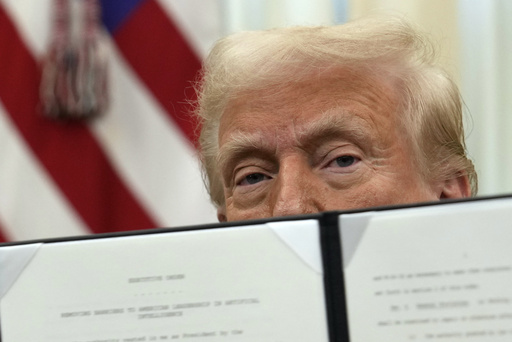In a bold move, President Donald Trump has signed an executive order imposing sanctions on the International Criminal Court (ICC). This decision comes as the ICC investigates Israeli actions during the Gaza conflict, which followed the Hamas attacks of October 2023. The conflict has resulted in heavy casualties, including numerous children.
Criticism of the ICC’s actions
Trump’s executive order sharply criticizes the ICC, calling its investigations into Israel “illegitimate” and “baseless.” The order argues that the court is unfairly targeting both Israel and the U.S. It also decries the ICC’s arrest warrants against Israeli Prime Minister Benjamin Netanyahu and former defense minister Yoav Gallant as an overreach. Trump emphasizes that neither the U.S. nor Israel recognizes the ICC’s jurisdiction, and the actions represent a “dangerous precedent” for international relations.
Timing and impact of the executive order
The timing of the executive order is notable, as Netanyahu had just visited Washington. During his trip, he met with Trump and lawmakers on Capitol Hill. The order outlines severe consequences for those involved in ICC actions, including asset freezes and travel bans for ICC officials and their families.
Global backlash against the sanctions
Critics quickly voiced their concerns. Human rights advocates, such as Charlie Hogle from the ACLU, warn that the sanctions could undermine global justice efforts. They argue that this could make it harder for victims of human rights abuses to seek accountability.
Human rights groups speak out
Human rights organizations are furious. Sarah Yager from Human Rights Watch says that while criticism of the ICC is understandable, the sanctions are an overreaction. The move threatens free speech and accountability, they argue.
U.S.-ICC tensions
The U.S. and the ICC have a long history of tension. Neither country is part of the court, and there’s deep skepticism about its power to prosecute U.S. officials. In fact, the U.S. passed a law in 2002 that allows military intervention to free Americans held by the ICC. In 2020, Trump imposed sanctions on Fatou Bensouda, the ICC’s chief prosecutor, after she opened an investigation into war crimes in Afghanistan, involving the U.S. military.
Impact on ICC operations
The impact of the sanctions on the ICC could be significant. They may restrict the court’s ability to travel and access vital technology, making investigations harder to carry out. Last year, the ICC was hit by a cyberattack that disrupted its operations, making it clear how vulnerable the court can be.
European discontent with U.S. sanctions
In Europe, some nations are unhappy with the U.S. sanctions. The Netherlands has called for continued cooperation to ensure the ICC’s effectiveness. Historically, the U.S. has been hesitant about the court, despite initially participating in the Rome Statute negotiations in the 1990s. President Bill Clinton signed the statute, but the Senate never ratified it, and subsequent administrations have distanced themselves from the court.
Trump’s latest executive order marks a turning point in U.S.-ICC relations. It reflects ongoing unease about international judicial authority and highlights the complex, contentious issue of accountability in global conflicts.




